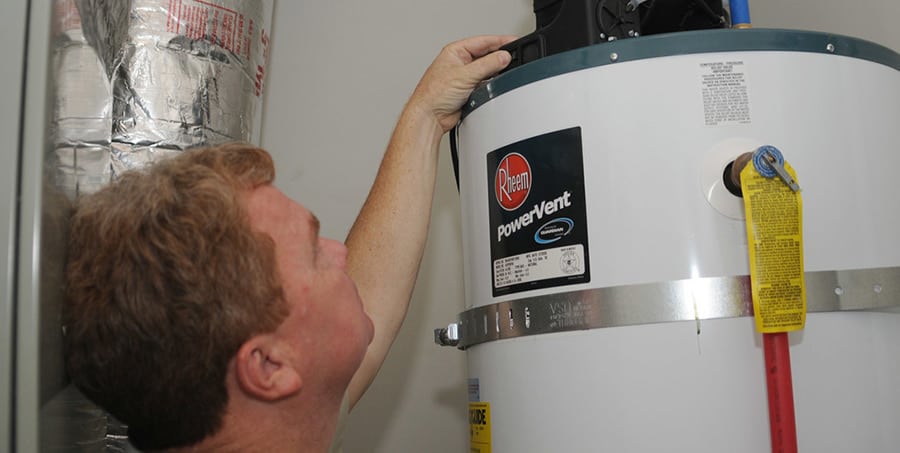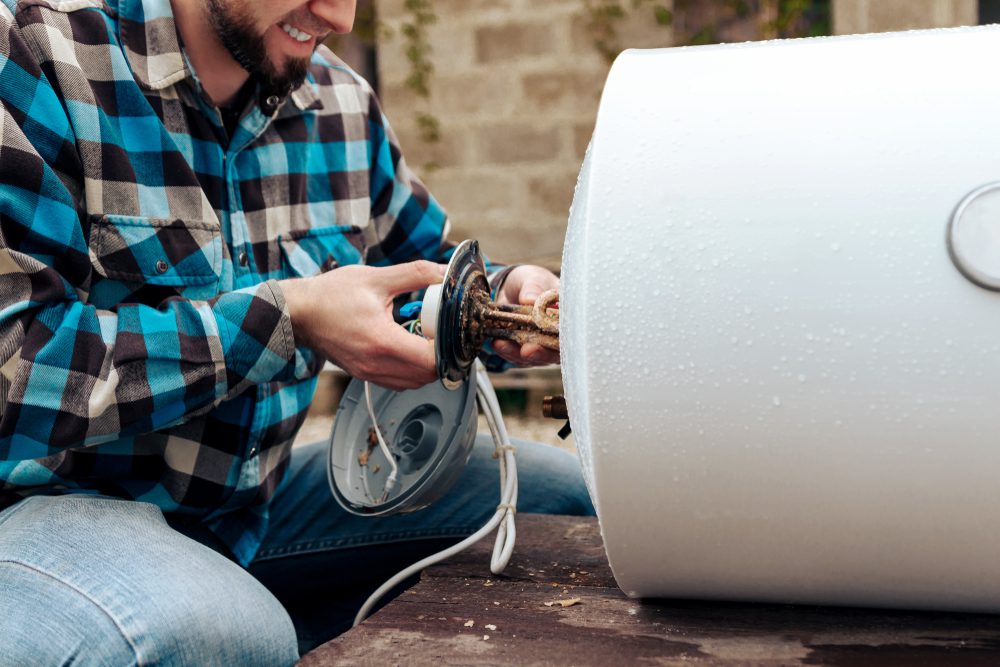Responding to the Primary Water Heater Urgencies
Responding to the Primary Water Heater Urgencies
Blog Article
Nearly everybody is bound to have their personal perception involving Common Hot Water Heater Problems.

A hot water heater is just one of one of the most vital basic devices that can be discovered in a home. With hot water heater, you don't need to go through the tension of home heating water manually each time there is a requirement to take a bath, wash, or the meals. Nevertheless, there is always an opportunity that your hot water heater would certainly act up just like a lot of mechanical devices.
It is important to keep in mind any type of little breakdown and also tackle it quickly prior to points get out of hand. Many times, your hot water heater begins to malfunction when there is a build-up of debris as a result of continuous use. As a precaution, routine flushing of your hot water heater is suggested to avoid sediment build-up and avoid useful failing.
Common water heater emergency situations as well as how to manage them
Dripping water heater container.
A leaky container could be an indication of rust. It might trigger damage to the flooring, wall surface and also electric devices around it. You might also be at threat of having your home swamped. In this scenario, you should turn off your water heater, allow it to cool down, and also thoroughly look for the source of the issue. Sometimes, all you require to do is to tighten a few screws or pipe connections in cases of minor leakages. If this does not work and also the leak lingers, you could require to utilize the solutions of a specialist for a proper substitute.
Fluctuating water temperature level.
Your water heating system might begin generating water of various temperature levels generally ice chilly or hot warm. There may be a requirement to change either the heating or the thermostat device of your water heating unit.
Too little hot water
It may be that the water heating unit can not sustain the warm water demand for your apartment or condo. You can update your water heating system to one with a bigger ability.
Stained or smelly water
When this happens, you require to know if the problem is from the tank or the water resource. If there is no amusing odor when you run cold water, after that you are specific that it is your water heater that is defective. The stinky water can be triggered by rust or the buildup of bacteria or debris in the water heater tank. You can attempt flushing out your container or changing the anode if the problem continues as soon as you notice this. The feature of the anode is to clear out microorganisms from your container. Given that the anode rod substitute needs a detailed understanding of your water heating unit, you will require the aid of a professional.
Conclusion
Some homeowners neglect little caution and minor faults in their hot water heater unit. This just causes additional damages as well as a possible total breakdown of your home appliance. You must take care of your water heater faults as soon as they come up to prevent even more expenses as well as unneeded emergency difficulties.
With water heating systems, you don't require to go via the anxiety of home heating water by hand every time there is a need to take a bathroom, do the laundry, or the recipes. Your water heater could start creating water of various temperatures typically ice scalding or chilly warm. It might be that the water heating unit can not support the hot water need for your house. If there is no amusing odor when you run cool water, after that you are specific that it is your water heating system that is faulty. The stinky water can be caused by rust or the buildup of bacteria or sediments in the water heating unit container.
Common Water Heater Issues and What You Should Do
What Type of Water Heater Do You Have?
Before we begin it’s first important that you identify the type of water heater you have on your property. There are two main types of water heaters out there: conventional and high efficiency.
Both of these types of products typically use either gas or electricity to heat power. There are also solar water heaters that use a thermal collector on the roof or yard to heat the water.
While these models are not as common, they can cut heating costs in half. In this article, we will focus on conventional and high efficiency.
How Do My Electric and Gas Water Heater Work?
Though they look similar, electric and gas water heaters work very differently. It’s important to know their basic function because often problems can be specific to the heating source.
In the electric model, a thermostat on the side of the machine detects the temperature of the water in the tank. When the temperature needs to rise electricity flows to a heating element suspended in the water.
Gas models also use a thermostat device — typically with a mercury sensor at the tip and an additional sensor called a thermocouple. The thermocouple detects whether the pilot light is on and controls the flow of gas.
When the thermostat drops below the appropriate level gas is released which becomes ignited by the pilot light. The flame heats the bottom of the water tank which causes hot water to rise and cold water to drop.
This natural circulation continues until the water reaches the desired temperature. Then, the thermostat triggers the gas control valve to shut off the flow of gas.
What Are the Most Common Issues and How Do You Fix Them?
https://happyhiller.com/blog/common-water-heater-issues-and-what-you-should-do/

As a devoted reader about The Importance of Water Heater Maintenance, I assumed sharing that short article was beneficial. Sharing is caring. Helping others is fun. We appreciate reading our article about The Importance of Water Heater Maintenance.
Quality and quick, dial! Report this page